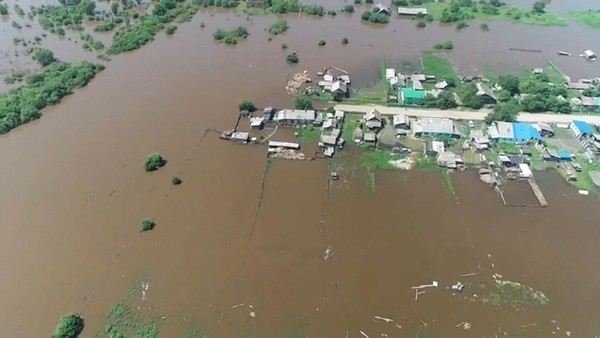Flooding in Europe, heat waves in southern Russia and Canada increase the impact on wheat and rapeseed prices

Global warming is exacerbating the appearance of unusual phenomena such as 45-degree heat in Canada or frosts in Brazil, which leads to more complex crop forecasting and the weather factor remains the main factor of pressure on prices.
This week, a number of European countries received more than monthly precipitation, which led to flooding in West Germany and Belgium, as well as in some regions of the Czech Republic, The Netherlands, Luxembourg and France, which continued to reduce the rate of harvesting and lead to the loss of part of the crop.
Dozens of people are reported dead and missing.
The extent of the damage has yet to be assessed, but it is already clear that this is the most catastrophic flood in Europe in the last 20 years.
In the Canadian Prairies, canola and wheat growing areas experienced dry and hot conditions this week, which increased the stress on crops that have been suffering from a lack of moisture since spring. Precipitation and lower temperatures are forecast for the next week, which may reduce the threat, but according to experts, the crop potential has already been reduced.
In the United States, in the northwestern part of the corn and soybean belts (Wisconsin, Iowa, Minnesota), which border the plains, long-awaited precipitation has passed that will improve the condition of crops of corn, soybeans and spring wheat. According to forecasts, hot and dry weather will be established again in the coming week, which will be very unfavorable for corn forming the cob, and not high temperatures and precipitation are important during this period.
In areas of the southern and northern plains of the United States, light precipitation has passed, but their amount is not enough to improve the condition of spring wheat and soybean crops. Forecasts of a new heat wave next week with temperatures of 35-38 degrees and no significant precipitation continue to push the prices of spring wheat and soybeans up.
In the south and in the Volga region of Russia, hot weather was established with temperatures of 35-38, without precipitation, which will continue for at least a week, which leads to a drying of the winter wheat crop, which is actively harvested, and analysts started talking about possible damage to spring wheat, corn and sunflower crops in some regions.
In the central part of Brazil, hot and dry weather remains, which negatively affects the late sowing of corn, which is in the filling phase, and corn harvesting in Brazil is delayed. Next week, precipitation will pass in the southern regions, but in some regions frosts are forecast, which can damage corn.
In Ukraine, hot and dry weather also continued this week with temperatures of 30-35 degrees, but next week light precipitation and a drop in temperature to below 30 degrees are forecast, which will be favorable for corn, soy and sunflower crops.


